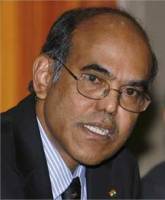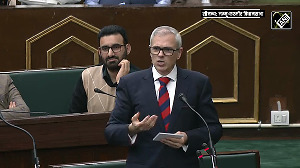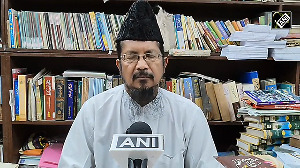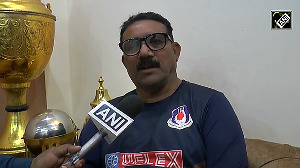 Pleading helplessness in taming rising prices in the short-term, the RBI said on Monday it cannot do much to contain inflation which is caused by inadequate supply of essential items.
Pleading helplessness in taming rising prices in the short-term, the RBI said on Monday it cannot do much to contain inflation which is caused by inadequate supply of essential items."Monetary policy, as is well known, is an ineffective instrument for reining in inflation emanating from supply pressures", Reserve Bank Governor D Subbarao said at a meeting of the Central Bank's Governance Group in Basel.
The drivers of inflation in India, he added, "often emanate from the supply side which is normally beyond the pale of monetary policy.
"It is unrealistic, under these circumstances, to expect the Reserve Bank to deliver on an inflation target in the short-term".
Although the RBI for the ninth time since March 2010 raised its key policy rates to check price rise, the headline inflation has remained well above 8 per cent as against the comfort level of 5-6 per cent.
The headline inflation was 8.98 per cent for March, while the food inflation was 8.76 per cent for the week ended April 16.
The central bank had earlier in the month raised its short-term lending and borrowing rates by 50
Noting that efficient transmission of monetary policy stance was essential for checking price rise, Subbarao said: "In India, monetary transmission has been improving but is still a fair bit away from best practices".
These factors, he added, dampen the efficacy of monetary signals and complicate the adoption of an inflation targeting regime in the country.
The Governor further said that in a country like India inflation targeting was "neither feasible nor advisable".
"The Reserve Bank cannot escape from the difficult challenge of weighing the growth-inflation trade off in determining its monetary policy stance," Subbarao said.
The RBI in its monetary policy for 2011-12 gave precedence to containing inflation over promoting economic growth.
According to the RBI, the Gross Domestic Product growth rate in the current fiscal is likely to moderate to 8 per cent from 8.6 per cent in the previous fiscal.
Worried over rising inflation, the government had set up an inter-ministerial group under Chief Economic Advisor Kaushik Basu to suggest ways for improving supplies and arresting price rise.








 © 2025
© 2025